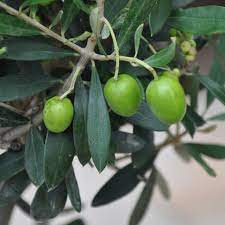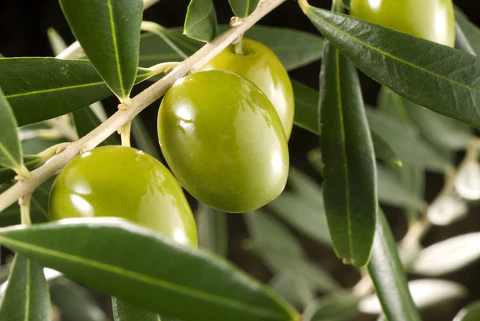Olive skin refers to a skin tone or complexion that has a slightly green or yellow undertone, similar to the color of olives. It is often considered a medium-toned skin color that falls between light and dark. Olive skin tones can vary in shade, ranging from light to deep, and are commonly found in individuals with Mediterranean, Middle Eastern, and some South Asian backgrounds.
Olive skin typically has undertones of green, yellow, or a combination of both. These undertones give the skin its distinct hue. Olive skin usually has a moderate amount of melanin, which provides a natural tan or a warm complexion. This pigmentation often provides some protection against sunburn. Olive skin tones are versatile and often complement various hair and eye colors. Many colors of clothing and makeup can look flattering on olive skin. People with olive skin tend to tan easily in the sun and may rarely burn, owing to the increased melanin levels in their skin.
It is important to note that everyone’s skin is unique, and the specific characteristics of olive skin can vary from person to person. Skincare and makeup choices should be tailored to an individual’s unique skin undertones, shades, and preferences.
The Economic Importance and Uses of Olive Skin

Olive skin” typically refers to a particular skin type or complexion characterized by a warm, tan or light brown hue. However, if you’re referring to the economic importance and uses of olives (the fruit), I’ll provide information related to that.
Olive production and processing have significant economic importance globally, especially in regions where olives are a staple crop.
Here are the economic importance and uses of olives and olive products:
1. Olive Oil Production and Sales: Olive oil is a major product derived from olives and is a crucial component of Mediterranean cuisine. The global demand for olive oil has been increasing due to its health benefits and culinary versatility. It’s used for cooking, salad dressings, marinades, and as a condiment.
2. Table Olives: Olives are also consumed as a table food, often as appetizers, snacks, or in various dishes. Table olives are usually brined or cured to enhance their flavor and extend shelf life. This market contributes significantly to the overall economic value of olives.
3. Export Industry: Olive products are a major export commodity for countries with significant olive cultivation. Mediterranean countries, such as Spain, Italy, Greece, and Tunisia, are major exporters of olives and olive oil, contributing significantly to their economies.
4. Employment Opportunities: Olive cultivation, harvesting, processing, and distribution create employment opportunities, especially in regions where olives are a major crop. This supports livelihoods and helps in economic development.
Read Also: Currant Flowers: Economic Importance, Uses and By-Products
5. Tourism and Agritourism: Olive farms and olive oil production facilities often attract tourists interested in learning about the olive oil production process and tasting different varieties of olive oils. This contributes to the local tourism industry and supports the economy.
6. By-Products and Waste Utilization: Olive processing generates by-products like olive pomace, which can be used to produce olive pomace oil, used in various industrial applications. Additionally, olive waste can be utilized for energy production through processes like anaerobic digestion or composting.
7. Health and Wellness Industry: Olive products are associated with numerous health benefits, including being a source of healthy fats, antioxidants, and anti-inflammatory properties. The health-conscious consumer market drives the demand for olive products, further contributing to the economy.
8. Industrial and Cosmetic Uses: Olive oil and its derivatives are used in cosmetic and personal care products such as skin moisturizers, hair treatments, and soaps. Olive oil is known for its moisturizing and nourishing properties, making it a valuable ingredient in these products.
9. Research and Development: The study of olives and their products continues to be a focus of research and development, leading to innovations in agriculture, processing techniques, and product development. This drives advancements in the industry and supports economic growth.
The Products and By-products That Can Be Derived From Olive Skin
Olive skin, referring to the skin tone often associated with individuals of Mediterranean or Middle Eastern descent, does not yield products or by-products in the same way that other materials or organisms might. Olive skin is a description of human skin color and type rather than a material that can be processed or used to create products or by-products.
However, olive oil, which is derived from olives (the fruit of the olive tree), is a product that is closely related to olives and is commonly associated with Mediterranean cultures where olive skin tones are prevalent. Olive oil is a significant product obtained from olives and is widely used in cooking, cosmetics, and for various health benefits.
1. Olive Oil: Derived from olives, olive oil is a widely used cooking oil and is also used in various beauty and skincare products due to its moisturizing and antioxidant properties.
2. Olives: The fruit of the olive tree, often consumed as a food product, either whole or in various processed forms like pickles or olive paste.
3. Olive Wood: The wood from the olive tree is prized for its durability and unique grain patterns, often used for carving, utensils, furniture, and decorative items.
4. Olive Leaf Extract: Extracts from olive leaves are used in traditional medicine and some supplements due to potential health benefits, including antioxidant and antimicrobial properties.
5. Olive Pomace: The leftover pulp and pits from olive oil production, which can be used to extract residual oil or used as a fuel source.
6. Pomace Oil: This is extracted from the olive pomace (the residue remaining after the first pressing of olives for virgin olive oil). It is often used in industrial processes, such as soap-making or as a fuel source.
Read Also: 15 Medicinal Health Benefits Of Avaram Senna (Senna auriculata)
7. Olive Residue: After the extraction of oil, the leftover residue can be used as compost or animal feed.
8. Cosmetics and Skincare Products: Olive oil is a common ingredient in various beauty products, such as moisturizers, lotions, soaps, shampoos, and conditioners, due to its moisturizing and antioxidant properties.
9. Cooking and Culinary Uses: Olive oil is a staple in Mediterranean cuisine and is used for cooking, baking, dressings, and marinades. Different grades of olive oil (e.g., extra virgin, virgin, light) are utilized for various culinary purposes.
10. Pharmaceuticals and Supplements: Olive oil is sometimes used as a carrier oil for certain pharmaceutical and nutritional supplements.
In conclusion, olives and olive products contribute significantly to the global economy through their widespread use in culinary, cosmetic, and industrial applications, as well as their role in tourism and employment generation.
Read Also: Comprehensive Farm Startup Guide

